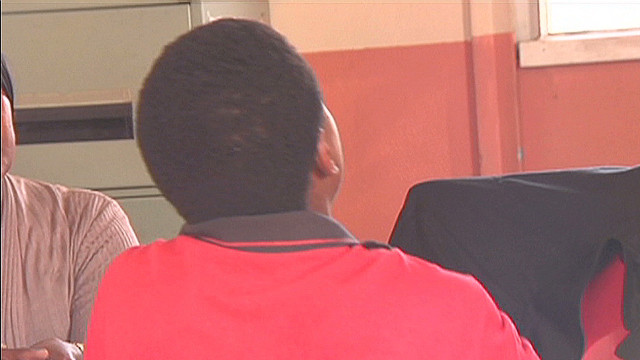
The mother of a South African girl seen gang-raped in a cellphone video slammed authorities for neglecting to protect her mentally disabled daughter when she was raped before.
"They failed me," the mother said, referring to South African social welfare authorities who turned down a request to place her daughter in a safe house after the teen was first assaulted. "I asked them for help and they said there was no abuse in our home and no need to remove her."
The images of the cellphone video assault swept across the internet last week and touched a nerve in South Africa.
The 17-year-old girl went missing on March 21. Police suspect she was kidnapped and turned into a sex slave. The cellphone video of her gang rape surfaced and went viral among school children in Soweto, the vast township near Johannesburg.
Attack on disabled girl angers S. Africa Defending the defenseless in South Africa South African gang-rape attack filmed
The Daily Sun, a local tabloid, alerted the police about the attack after a concerned mother whose daughter was watching the video handed it over to the paper on Tuesday.
Police embarked on a search for the girl and the people in the video.
Eight suspects have been arrested and charged with kidnapping and rape of the teen. Seven of them, ranging from ages 14 to 20, were seen on the video; the other was a 37-year-old man found with the girl on Wednesday.
The victim's mother -- interviewed by CNN in the impoverished Soweto neighborhood of Bramfischer -- claims her daughter was raped in 2009 by a Zimbabwean man who lured the girl into a field with the promise of apples.
That case went to court, the mother said, but was thrown out.
"The magistrate said there was no evidence. I think it was because my daughter couldn't explain properly what happened to her in court. She often gets things confused. She could say something that happened today happened yesterday," the mother said.
Then the girl was raped again in 2010, she said: "It's 2012 now, and I'm still waiting for DNA results."
Some of the woman's neighbors blame the mother, saying she neglected the teenager, who has run away from home before.
"I cannot lock her up in the house all day," the mother said. "She needs to get out. She wants to socialize with other children. I didn't want to make her wild and want to run away by locking her up."
After the girl was found and as the news of the video emerged, the government placed her in a safe house -- a place where she can attend school and socialize in a secure environment.
"They are coming now because things have turned out this way," the mother said. "They shouldn't pretend as if they have been standing up for me. They never stood up for me."
The minister of women, children and people with disabilities, Lulu Xingwana, says she will investigate the mother's grievances. The ministry was created to deal with violence against women and other related matters.
"I think we need a report on which social welfare office she went to so that I can take it up with social welfare. So I don't think we should play the blame game now that we have a child in need of support," Xingwana said.
Xingwana said her agency has done a lot to "raise awareness" of rape.
"The very fact that people are reporting these cases means that we have fought to break the culture of silence," she said.
But the Medical Research Council of South Africa said one in nine people choose to report rape incidents to police. The woman who blew the whistle on the video went to a newspaper, not police --a reflection of the loss of faith among many citizens in the criminal justice system.
Boys living in the teenager's neighborhood say the lack of police action has made mentally disabled girls easy targets.
"They take advantage of the fact that a mentally disabled person wouldn't report the the case," said Sithembiso Sithole. He eyeballed and deleted the "disturbing" video.
"It's impossible to watch all of it. It's very painful, especially for those of us who know her."
Aucun commentaire:
Enregistrer un commentaire
welcome